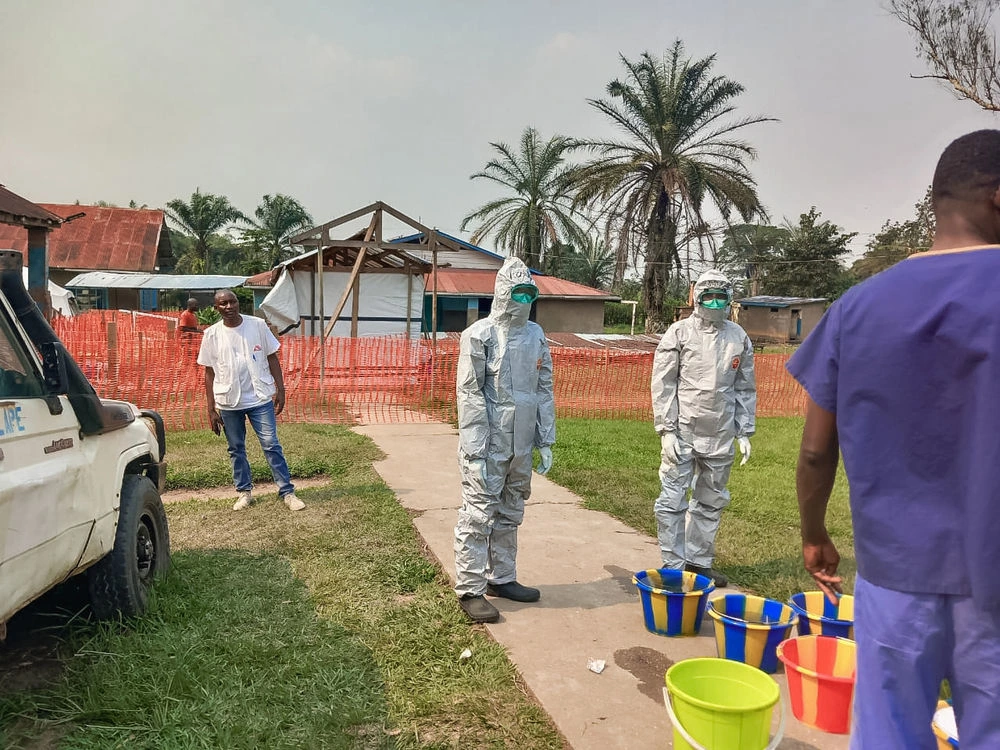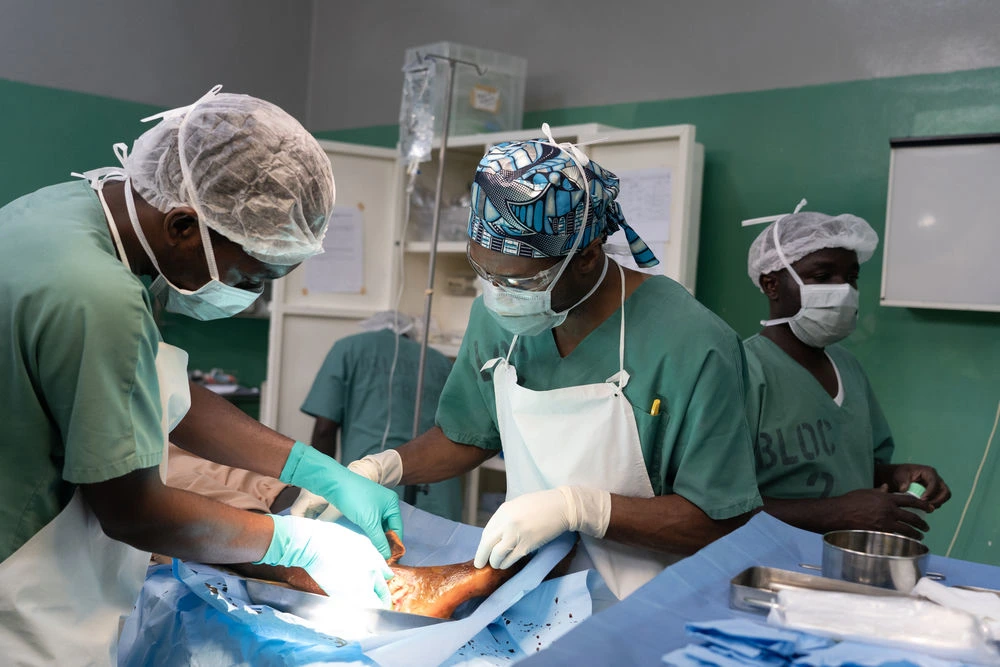On 4 September, the Ministry of Health (MoH) of the Democratic Republic of Congo (DRC) officially declared a new outbreak of Ebola Virus Disease (EVD), Zaire strain, in Bulape Health Zone, part of Mweka territory in Kasaï province. This remote region, located in south-central DRC, is difficult to access, with poor road conditions, no cargo airport, and limited electricity—factors that are severely complicating the response.
As of 9 September, national health authorities reported more than 20 confirmed cases and 16 deaths. Several health workers are among the victims. This marks the 16th Ebola outbreak in DRC since the virus was first identified in the country in 1976.
In coordination with the Congolese Ministry of Health and alongside the World Health Organization (WHO), Médecins Sans Frontières (MSF) rapidly mobilised teams and joined a multi-agency emergency mission to the area to assess the situation and support immediate response efforts.
Our teams began supporting the General Referral Hospital in Bulape almost immediately. We helped reinforce triage protocols, supplied essential medicines and personal protective equipment, and conducted training in infection prevention and control (IPC) and symptomatic care.
Brice de le Vingne, MSF emergency coordinator
An Ebola Treatment Centre (ETC) has been established by MSF and WHO within the hospital compound, and on 9 September, the facility began admitting its first patients. MoH, MSF and WHO teams are jointly providing care.
In addition, MSF teams have visited surrounding health facilities to strengthen IPC protocols and train healthcare workers in how to respond safely and effectively to suspected Ebola cases.
Currently, a dozen MSF staff are present in Bulape, and we are sending in more people and tonnes of medical materials. We’re working hand in hand with Congolese health authorities to evaluate needs on the ground and determine where our support might also be required—such as in surveillance, community engagement, or vaccination.
Vingne
The World Health Organization has confirmed that 2,000 Ebola vaccine doses are currently available in-country, with additional shipments expected in the coming days. MSF stands ready to support vaccination efforts if requested by health authorities.
This outbreak is a reminder of the threat posed by Ebola in the DRC. Fortunately, progress in recent years has led to improved treatments, but this hemorrhagic fever can still be fatal for most infected patients without timely and appropriate care. Ensuring access to both treatment and vaccines is essential.
Hilde De Clerck, MSF infectious diseases specialist
Ebola is transmitted to humans through direct contact with blood, secretions, organs, or other bodily fluids of infected animals. Human-to-human transmission occurs through close contact with the bodily fluids of infected individuals, particularly via mucous membranes such as the mouth or nose.
This is not the first time Mweka territory has faced an Ebola outbreak—MSF also supported responses to previous outbreaks in the area in 2007 and 2008.



